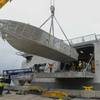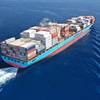World Bank: China's BRI Needs Transparency
China's global Belt and Road Initiative (BRI) could boost economies and reduce poverty rates in dozens of developing countries, but it must be accompanied by increased transparency, said World Bank.
A new World Bank Group study on the BRI transportation corridors said that improvement in risks environmental damage, debt and corruption should be made.
BRI is an ambitious programme to connect Asia with Africa and Europe via land and maritime networks along six corridors with the aim of improving regional integration, increasing trade and stimulating economic growth.
President Xi Jinping's signature foreign policy aims to reinvent the ancient Silk Road to connect Asia to Europe and Africa through massive investments in maritime, road and rail projects -- with hundreds of billions of dollars in financing from Chinese banks.
Through independent, empirical analysis, the Belt and Road Economics study is designed to help policymakers in developing countries weigh the potential benefits and risks of participating in BRI projects.
It assesses the network of proposed transportation projects in about 70 countries along land and maritime BRI corridors that connect Asia, Europe, and Africa. It also provides a series of policy recommendations to help developing countries along those corridors maximize potential benefits while mitigating a variety of risks.
“Achieving the ambitions of the Belt and Road Initiative will require equally ambitious reforms from participating countries,” said Ceyla Pazarbasioglu, the World Bank’s Vice President for Equitable Growth, Finance, and Institutions. “Improvements in data reporting and transparency—especially around debt—open government procurement, and adherence to the highest social and environmental standards will help significantly.”
If implemented fully, the initiative could lift 32 million people out of moderate poverty—those who live on less than $3.20 a day, the analysis found. It could boost global trade by up to 6.2 percent, and up to 9.7 percent for corridor economies.
Global income could increase by as much 2.9 percent. For low-income corridor economies, foreign direct investment could rise by as much as 7.6 percent. At the same time, the cost of BRI-related infrastructure could outweigh the potential gains for some countries.










